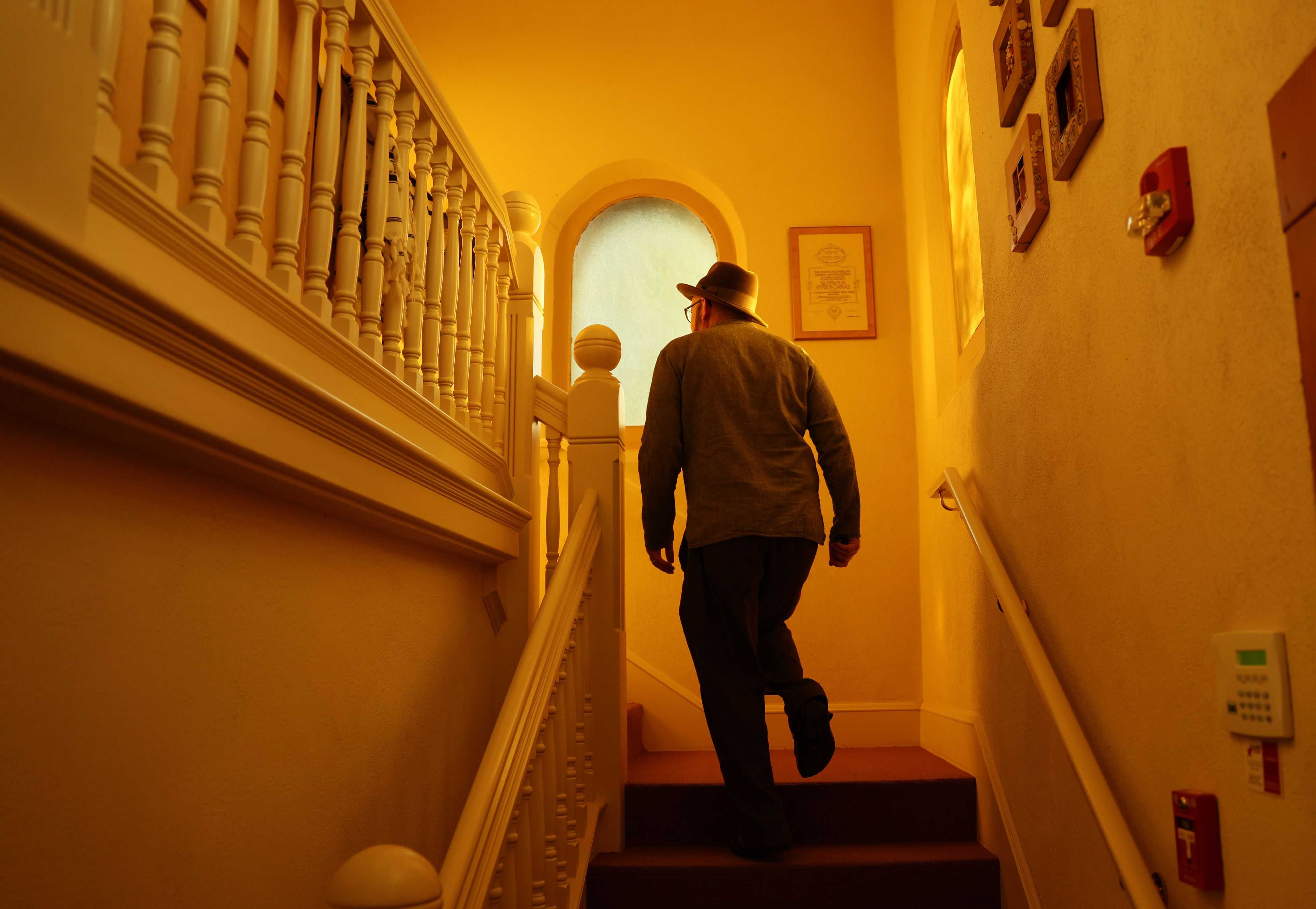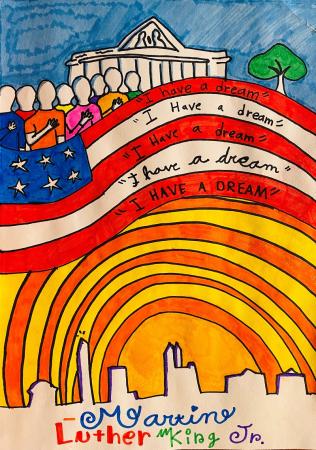While 2024 was, in many ways, an austere year filled with war and ugly politics, it gave us some great music. My twelve favorite albums—one for each of the past twelve months—reflect that abundance. This quirky personal list leans heavily on gutsy, gifted women leading the way in the Americana and indie rock genres. As we brace for the disasters and injustices that a second Trump administration will inevitably bring, we will need these voices more than ever. With gratitude to the artists who do so much to keep me going, here’s my top twelve:
12: Mary Timony, “Untame the Tiger”
Guitar legend Mary Timony offers an astonishing combination of ferocity and vulnerability starting with her opening track, “No Thirds.” It’s a lesson in navigation for our troubled times:
Check the situation, is it cruel or is it kind?
We wander in the desert, trying to find time
The white flags above us, fly on our doubt
Time to meet the mountain, there’s no other way out
https://www.youtube.com/watch?v=edT6INzLd3U
11: Gillian Welch and David Rawlings, “Woodland”
Veteran Americana artists Gillian Welch and David Rawlings play gentle folk with a steely spine. Like most of our best writers, they offer more questions than answers. In “Hashtag” they reflect on the wisdom and uncertainty that come with aging:
You said time makes the wheels spin
And the years roll out and the doubt rolls in
In the truck stops, in the parking lots
And the cheap motels
When will we become ourselves?
When will we become ourselves?
https://www.youtube.com/watch?v=9Hx99yvV5fM
10: Nada Surf, “Moon Mirror”
I have always adored jangly guitar, from the folk rock of the Byrds to the country twang of Lucinda Williams; when you add in Nada Surf’s Buddhist philosophical bent, I find it irresistible. In this year of my own retirement, I especially appreciate their mature wisdom in “In Front of Me Now”:
I used to be dreaming when I was driving
I used to be leaving when I was arriving
I used to be calling when I was walking
I used to be thinking when I was talking
I used to be counting when I was sharing
I used to be blanking when I was staring
I used to be rolling when I was parking
I used to be raining when I was sparking
Today I do what’s in front of me now
Today I do what’s in front of me now
https://www.youtube.com/watch?v=f5aToiQ3co4
9. Nubya Garcia, “Odyssey”
A few years ago at the Treefort Music Festival, I happened upon a show by the young jazz saxophonist and bandleader Nubya Garcia. I was stunned by her artistic virtuosity. Garcia’s new album, “Odyssey” channels—and updates—the transcendent spirituality of John Coltrane’s “A Love Supreme.” Listen as the artist weaves her horn around drummer Sam Jones’s funky groove and the celebratory lyrics of “Triumphance”:
Your journey is yours
See yourself
Realize and respect your worth
Your difference is your power
Our differences are our collective power
Your journey is yours
Raise up your hands, uplift your soul
And in triumphance together
All as one
https://www.youtube.com/watch?v=_QPcDlDxDVw
8: Kacey Musgraves, “Deeper Well”
Thoughtful, progressive country from the reigning queen of that genre. As a forest therapy guide, I love “Heart of the Woods”—a kind of hymn to the paradigm-shifting new science that recognizes the intelligence of plants and the interconnectedness of all things, both Human and More-than-Human:
Under the ground
There’s a neighborhood that can’t be seen
Communicating through the roots of the trees
And up in the trees
There are voices that are echoing
A million different languages
Songs we sing
It’s in our nature
To look out for each other
In the heart of the woods
https://www.youtube.com/watch?v=9vlnmaB4Ltw
7: The Decemberists, “As It Ever Was, So It Will Be Again”
As the title suggests, a kind of return to classic form for The Decemberists. More jangly guitar and Colin Meloy’s superb lyrics, including some wry dark humor, especially in the wildly catchy opener “Burial Ground”:
They’ve undid the aerial, tore down the merry-go-round
This world’s all wrong, so let’s go where we belong
Pack up the stereo, meet at the burial ground
https://www.youtube.com/watch?v=dBlJ35D7tss
6: Maggie Rogers, “Don’t Forget Me”
Book-smart, world-wise beyond her thirty years and so melodious. How many legit rock stars have a degree from Harvard Divinity School? Listen closely to the closing song, “Don’t Forget Me.” We all want to leave a mark, even though we know it’s ultimately as evanescent as footprints in the sand:
So close the door and change the channel
Give me something I can handle
A good lover or someone who’s nice to me
Take my money, wreck my Sundays
Love me till your next somebody
Oh, and promise me that when it’s time to leave
Don’t forget me
Don’t forget me
https://www.youtube.com/watch?v=JHh3w5xgSkc
5: Bonnie Light Horseman, “Keep Me On Your Mind”
While Anais Mitchell is best known as the creator of the brilliant musical Hadestown, she is also (along with Eric Johnson and Josh Kaufman) a member of the folk rock band Bonny Light Horseman. Running throughout their gorgeous 2024 album “Keep Me On Your Mind” is the quest for home in a world adrift. It’s a kind of contemporary take on Keats’s notion of Negative Capability, “being in uncertainties, mysteries, doubts, without any irritable reaching after fact and reason.” Surrendering to the beauty, as they do in this passage from “Over the Pass”:
The hill became a mountain
And the fall became snow
The road was black as pitch
Coyotes in the ditch
And we wondered if we’d ever make it home. . .
Time was moving slowly
Like some old movie scene
In a broken-down canoe
With the ocean in view
We wondered if it all had been a dream
Finally, at last we’re over the pass
Glory, at last we’re over the pass
https://www.youtube.com/watch?v=2UALhQJALds
4: Katie Gavin, “What a Relief”
Intimate, confessional and defiant alternative rock from a proud, queer feminist. In “As Good As It Gets,” Ms. Gavin sings a duet with Mitski that celebrates a kind of love that is rarely acknowledged in pop songs: grounded, realistic, good enough—the quiet joy of commitment that endures after the initial rush of lust and infatuation wears off. Another highlight is “The Baton,” an anthem of empowerment that acknowledges the work of past generations and reaffirms the artist’s clarion call for a brighter future:
Oh if I had a daughter
I know what I would tell her
I know what I would tell her when she’s old enough to know
I would tell my daughter
She must be her own mother
‘Cause I can only take her as far as I can go
And on that very same day
She’d join a kind of relay
I’d pass her the baton and I’d say, “You better run”
‘Cause this thing has been going
For many generations
But there is so much healing
That still needs to be done
So go on, girl, it’s out of my hands
I can’t come where you’re going
But time unfurls, and you’ll understand
The baton, it will be passed again
https://www.youtube.com/watch?v=ZlAavAf9N7s
3. Willi Carlisle, “Critterland”
When asked to define himself, Ozark country-folk singer-songwriter Willi Carlisle responded: “A newspaper once called Walt Whitman ‘a queer occultist or a blethering yokel,’ and I thought I'd try to be both. On “Critterland,” he brings a beautifully-skewed sense of humor to his songs of hard times, drug use and recovery, a crazy quilt of rural living, arranged over classic high lonesome guitar, banjo, mandolin and fiddle tunes. It’s cathartic and healing. Enjoy the title track, as Carlisle sings his life’s story with help from the animal kingdom:
I coulda been a businessman, I was too hot-headed
Plus I never had the money, plus I kinda got arrested
But my sweet old folks thought I’d make a pretty decent one of those
I still live the kind of life where people judge ya on your clothes
Now it’s forty miles of backroad on all-terrain tires
That little blue hymnal sittin’ open all the while
Singin’ songs to a god I have met but do not know
Makin’ wagers on the critters that we see crossin’ the road
Yeah, the sparrow on the wing taught me to find you
And the possum knows his own mind more than I do
I’m here for all the love that I can stand
Take me to Critterland
https://www.youtube.com/watch?v=hbdBwI58MyE
2: Adrianne Lenker, “Bright Future”
A poignant and sublime solo effort from Big Thief’s lead singer-songwriter. “Bright Future” is full of Lenker’s trademark wordplay and quirky, brilliant insights into love and life. She teaches us to see “Sadness as a Gift” and paints hypnotic musical pictures that crack your heart wide open. “Donut Seam” is both a lament for lost love in a bitterly broken world and, ultimately, a call to seize the day:
You came in like some good things do
Out of nowhere, dream come true
And showed me things I never knew
What it means to walk that line
Like a moth into the sun
I flew in front of everyone
And burned up in the flame
Now it’s pouring acid rain, and
This whole world is dying
Don’t it seem like a good time for swimming
Before all the water disappears?
Now it seems our love is dying
Don’t it seem like a good time for kissing?
One more kiss
One more kiss to last the years
https://www.youtube.com/watch?v=Pt6EvTxWRzw
1: Waxahatchee, “Tiger’s Blood”
Katie Crutchfield is, far and away, my favorite artist of the 21st century. Her 2020 release, “Saint Cloud” set an impossibly high bar, yet if anything, “Tiger’s Blood” surpasses it. Once again, my beloved jangly guitars, this time anchoring contemporary Faulkner-esque literary southern torch songs and rockers. I love MJ Lenderman’s featured vocals and guitars on the hit single, “Right Back To It” but my favorite is the closing number, a lyrical ballad that I hear as gratitude for the gift of being alive despite these troubled times. I began this list with Mary Timony untaming the tiger—what better way to end it than with Katie Crutchfield metaphorically drinking its blood:
You come alive in the heat, you ain’t crossing state lines
Stood up like a crepe myrtle can’t be killed or denied
Throw a brick through the window, leave your mess at my door
Lord knows sooner or later it’d wash up to shore
You’re laughing and smiling, drove my Jeep through the mud
And your teeth and your tongue bright red from tiger’s blood.
We were young for so long, seersuckers of time
Drank someone else’s juice, left only the rind
https://www.youtube.com/watch?v=FnZDvYiTSJs

